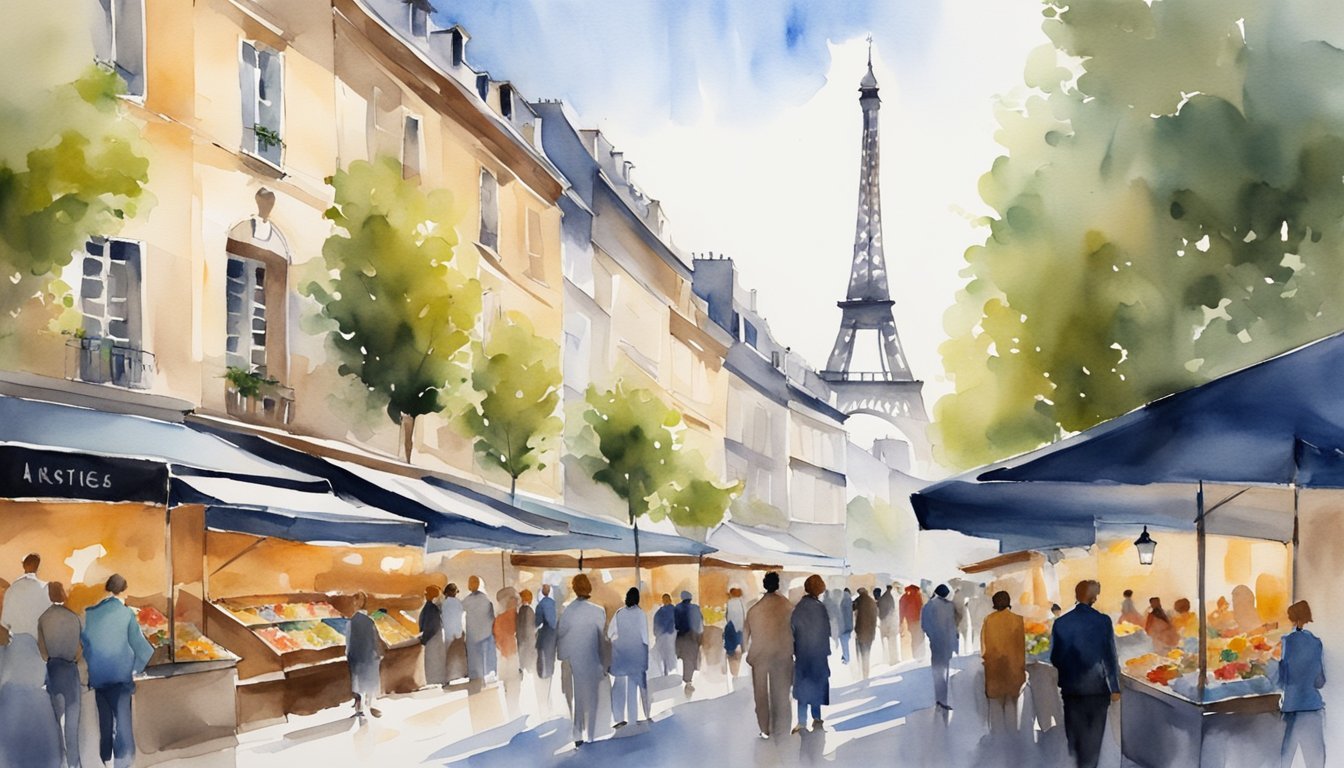Discovering France
Geographic Majesty
France, the largest country in Western Europe, has diverse landscapes stretching from the Atlantic Ocean to the Mediterranean Sea. The breathtaking French Alps dominate the south and east of the country, with Mont Blanc standing at a massive height of 4,810 meters, making it the tallest peak in Europe. This region also boasts picturesque beaches along the southeast coast, such as the renowned French Riviera.
The country shares borders with eight countries, including Germany, Spain, Italy, Switzerland, Belgium, Luxembourg, Monaco, and Andorra. Geographical features vary throughout the country, from the Pyrenees mountain range straddling the border with Spain to the Rhine River acting as a natural border between France and Germany.
Historical Legacy
The rich and intriguing history of France can be traced back to the Gauls, who lived in the region before it became part of the Roman Empire. Over the centuries, France has seen a multitude of rulers, from kings in the Middle Ages to the birth of the French Republic during the French Revolution.
One of history’s most notable figures, Napoleon Bonaparte, brought France to the forefront of the world stage through his military conquests. The nation also played a significant role in both World War I and World War II, with key figures like Charles de Gaulle emerging as national heroes.
France’s complex government system, known as the Fifth Republic, includes a president, prime minister, and parliament. The French Republic is part of the European Union, with the Euro being its official currency. French is the official language spoken by the vast majority of the population.
French culture is world-renowned for its contributions to art, literature, and science. The country’s capital, Paris, houses some of the most famous museums, such as The Louvre and Musée d’Orsay. The essence of French culture extends to its cuisine, which is regarded as some of the finest in the world.
As you can see, France has been shaped by centuries of history and geography, creating a nation with a unique blend of landscapes, culture, and historical significance. The French Republic offers a fascinating journey for those seeking to explore its diverse natural wonders, and better understand its pivotal role in shaping world history.
Cultural Splendors and Daily Life

Artistic and Culinary Traditions
France has a rich history of art, culture, and culinary traditions. The country has been a center of high culture since the 17th century and has played a significant role in shaping global art movements from the 19th century onward. French artists, such as those from the famous Louvre Museum, have contributed significantly to global artistic heritage.
When it comes to cuisine, France is renowned for its influential culinary styles and exceptional ingredients. The country is famous for its cheese, wine, and artisanal food products. French cuisine, along with its philosophy and theories, has had a profound impact on dining cultures around the world.
In the literary sphere, France boasts a vibrant scene, including a thriving comic book industry that has given rise to international bestsellers like Asterix and Obelix. The esteemed Prix Goncourt is a coveted literary prize awarded annually to French authors.
Lifestyle and Leisure
Daily life and social customs in France have evolved significantly since the postwar era. French people now dedicate more time to leisure and cultural pursuits, thanks to shorter workweeks, longer educational pursuits, and increased affluence. This shift has resulted in an emphasis on home-based entertainment, including television, stereo systems, and personal computers.
Despite the rise in home entertainment, French people still value cinema, theater, and sports. France is famous for hosting the Tour de France, a world-renowned cycling race that has been held annually since 1903. Other popular sports include football, tennis, and rugby.
The tourism industry is vital to France’s economy, with must-see landmarks such as the Eiffel Tower and the Louvre attracting millions of visitors each year. French cities like Paris, Marseille, Lyon, and Bordeaux are celebrated for their rich history, architecture, and cultural attractions.
In conclusion, France’s cultural splendors and daily life reflect the country’s long-standing artistic, culinary, and intellectual influence on the world stage, contributing to its enduring global appeal.

